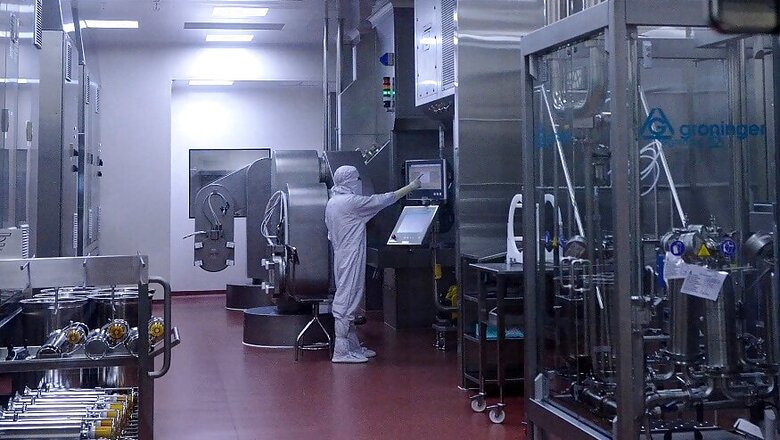
views
Scientists at the Indian Institute of Science Education and Research (IISER) along with Pune University will be studying if blood serum drawn from the participants of the serological surveillance contains all the important neutralizing antibodies. Results from the Pune sero survey which were released on Monday showed an estimated 51.5% seroprevalence in the five prabhags (municipal sub-wards) reflecting an extensive spread of infection in these areas.
Along with studying the presence of neutralizing antibodies, IISER and Pune University scientists are also working on a modelling study to estimate the infection’s prevalence across the entire Pune city.
The Pune Municipal Corporation (PMC) has provided testing data of the five sub-wards - Yerwada, Lohiyanagar-Kasewadi, Rastapeth-Ravivarpeth, Kasbapeth - Somwarpeth, Navipeth-Parvati. And this will be overlapped on the seroprevalence data in order to arrive at an estimate on the trajectory of cases and prevalence across the city, scientists involved in the study said.
The sero prevalence ranged from 36.1% to 65.4% and it was fairly spread across apartment buildings and slums. The seropositivity in slums or among those living in hutments was in the range of 56-62%, 43.9% among those living in bungalows and 33% among those living in apartments.
A total of 1,664 samples were collected to test for antibodies across the five wards, details shared by the Pune civic body, IISER and Pune University had revealed.
“Just having antibodies does not prevent the infection. There are many kinds of antibodies and most relevant are the ones that prevent and protect us from the infection. We are in the process of studying if the blood serum collected from the survey participants contains the neutralizing antibodies,” said Dr.Aurnab Ghose, Scientist, IISER and one of the two principal investigators of the Pune study.
“The singular big conclusion of this study is that a large proportion of the population has been infected by SARS-CoV-2. However, this needs more study to estimate prevalence across the city,” he added.
Dr.Aarti Nagarkar, Director, School of Health Sciences, Savitribai Phule Pune University and the other principal investigator of the Pune sero-survey said that their team will be collaborating with scientists from Imperial College, London on the modelling of prevalence.
“The Pune Municipal Corporation has provided us data on testing and positive cases in the sub-wards and that will complement the data and results of the sero-survey to investigate the prevalence and where the infection is slowing or growing,” said Dr.Nagarkar.
Survey sampling and methods
Instead of a broad geographical approach adopted in Mumbai, scientists in Pune selected sub-wards to collect samples based on the level of incidence – high, medium and low. The survey area was divided into 63 grids of equal size, each comprising 300-350 households. Residents of every sixth house were approached for collection of samples, said Dr.Ghose.
The samples were tested at Translational Health Science and Technology Institute, Faridabad, who had also developed the ELISA assays for testing. The survey also found out that prevalence among those who had independent toilets was 45.3%, which was lesser compared to 62.2% prevalence found in places where people shared toilets.



















Comments
0 comment